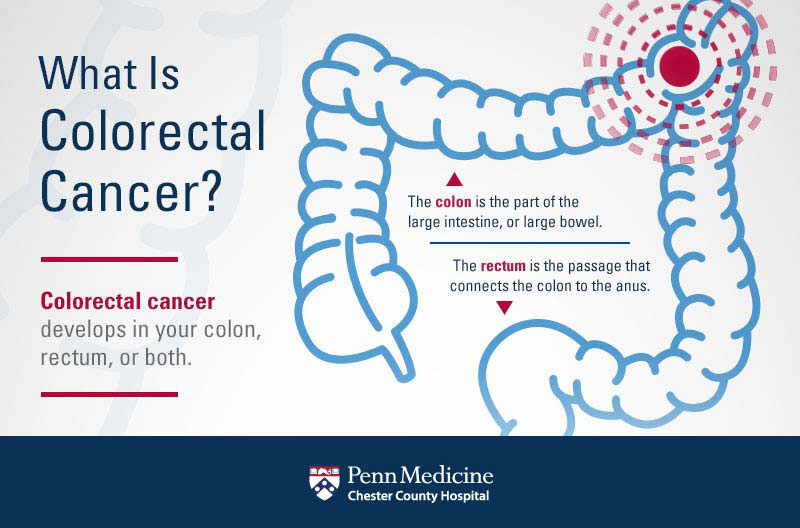March is National Colorectal Cancer Awareness Month!
March 12, 2021
St. Patrick’s Day, the first day of Spring, National Puppy Day — there are plenty of holidays worth celebrating during March. This year, add National Colorectal Cancer Awareness Month to your list, and take the necessary steps to protect your colorectal health.

Fast Facts About Colorectal Cancer
- Colorectal cancer is the third most common cancer in the US.
- Each year, roughly 140,000 people in the US are diagnosed with colorectal cancer — and more than 50,000 lose their lives to it.
- As a woman, your risk of colorectal cancer is 1 in 25.
- As a man, your risk of colorectal cancer is 1 in 23.
- Over 90% of colorectal cancers occur in adults over 50 years old.
What Are the Symptoms of Colorectal Cancer?
Colorectal usually develops with few — if any — symptoms. However, talk to your healthcare provider if any of the following apply to you:
- Change in bowel habits, such as intermittent or constant diarrhea/constipation
- Persistent abdominal pain, such as cramps, gas, or feeling bloated
- Rectal bleeding, which can show up as bright red blood, or black and tarry or brick red stool
- Weakness or fatigue
- Unexplained weight loss
Colorectal Cancer Disparities Among Black Americans
In August 2020, actor Chadwick Boseman lost a four-year battle with colon cancer, dying at the young age of 43. Boseman’s death highlighted the existing disparities in colorectal cancer among Black Americans, who are:
- 20% more likely to get colorectal cancer
- 40% more likely to die from colorectal cancer
- More likely to be diagnosed at a younger age
Colorectal Cancer Screening Saves Lives
- Adults between the ages of 45 and 75 should undergo regular colorectal cancer screening.
- Only two-thirds of adults are up-to-date with recommended colorectal cancer screening.
- During the COVID-19 pandemic, colorectal cancer screenings plummeted by as much as 84.5%.
- Colorectal cancer risk may increase due to a family history of colorectal cancer or a personal history of inflammatory bowel disease, certain types of polyps, or radiation to the abdomen or pelvic area.
- If you are younger than 45 — or older than 75 — but think you may be at higher risk of colorectal cancer, talk to your healthcare provider about additional screening.
Sources: Colorectal Cancer Alliance; Centers for Disease Control and Prevention; American Cancer Society; Fight Colorectal Cancer; Cancer Network
Do You Have Questions About Colorectal Cancer Screening?
Call 610-738-2300 or use our online form to find out more or schedule your colonoscopy at Chester County Hospital.
Related Information from Chester County Hospital: